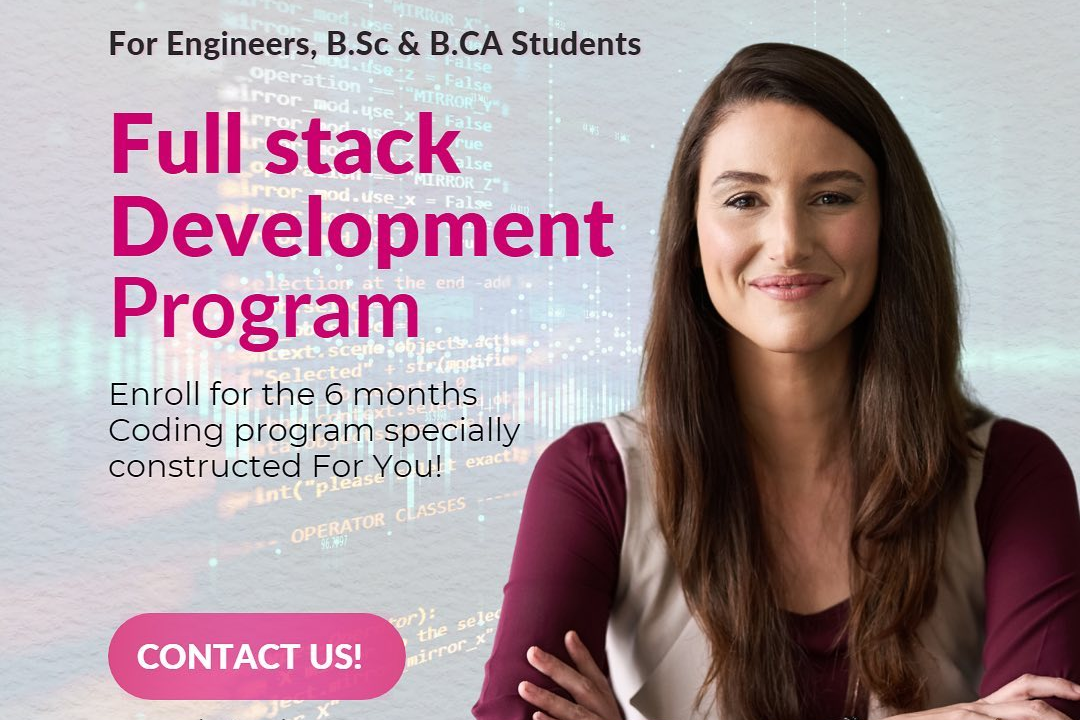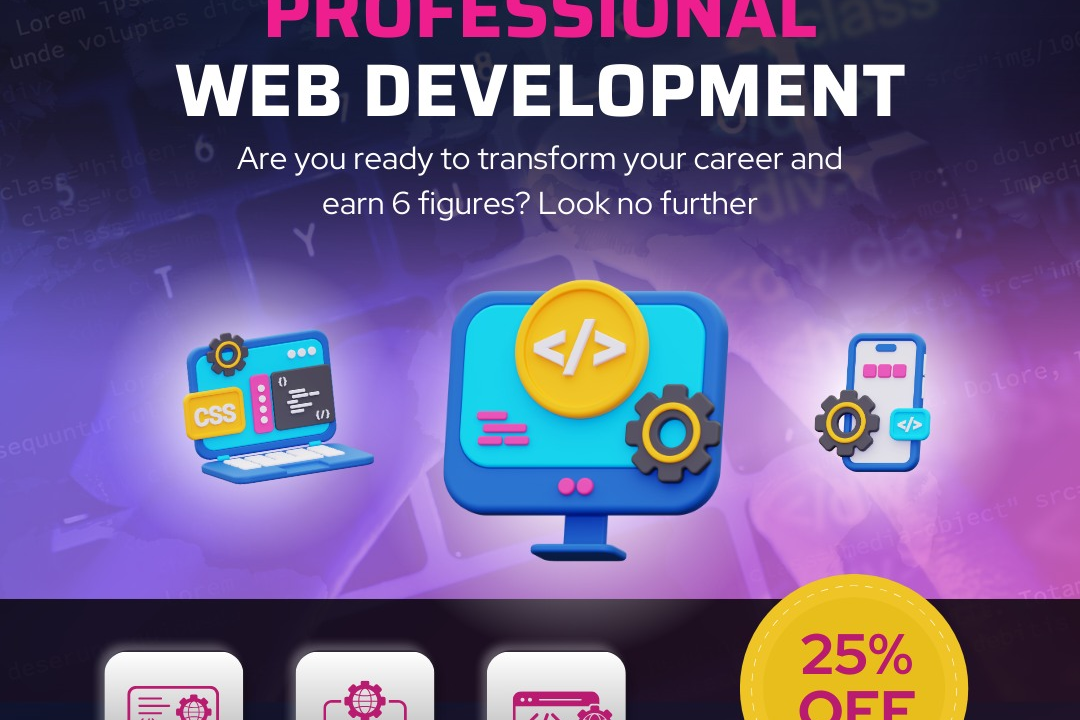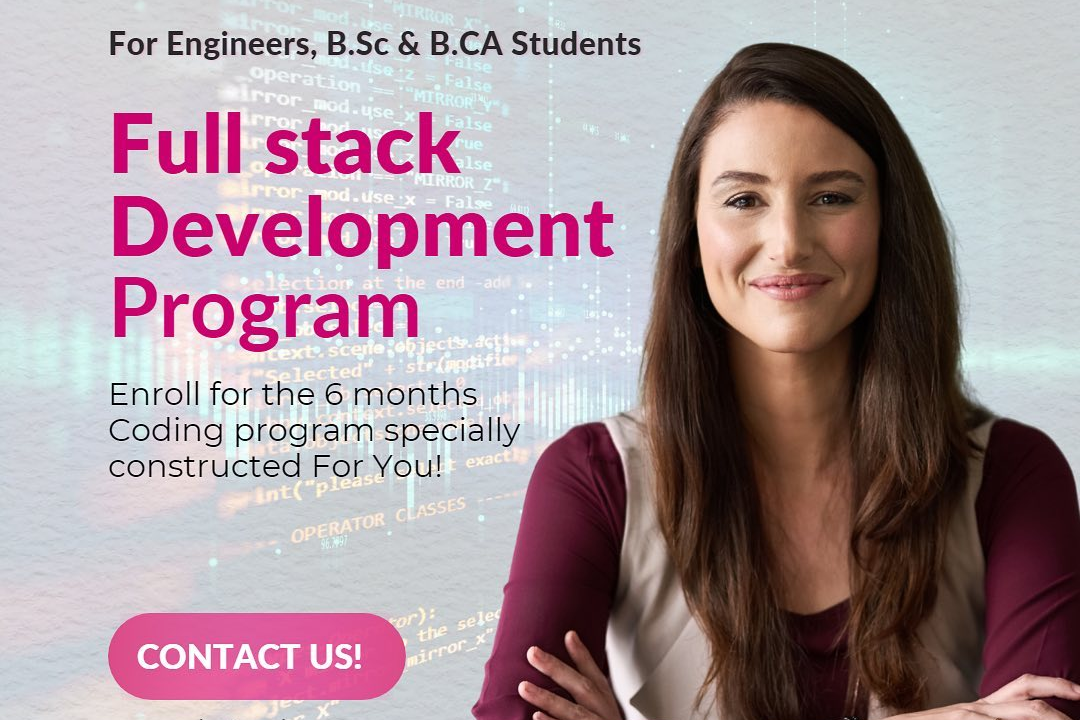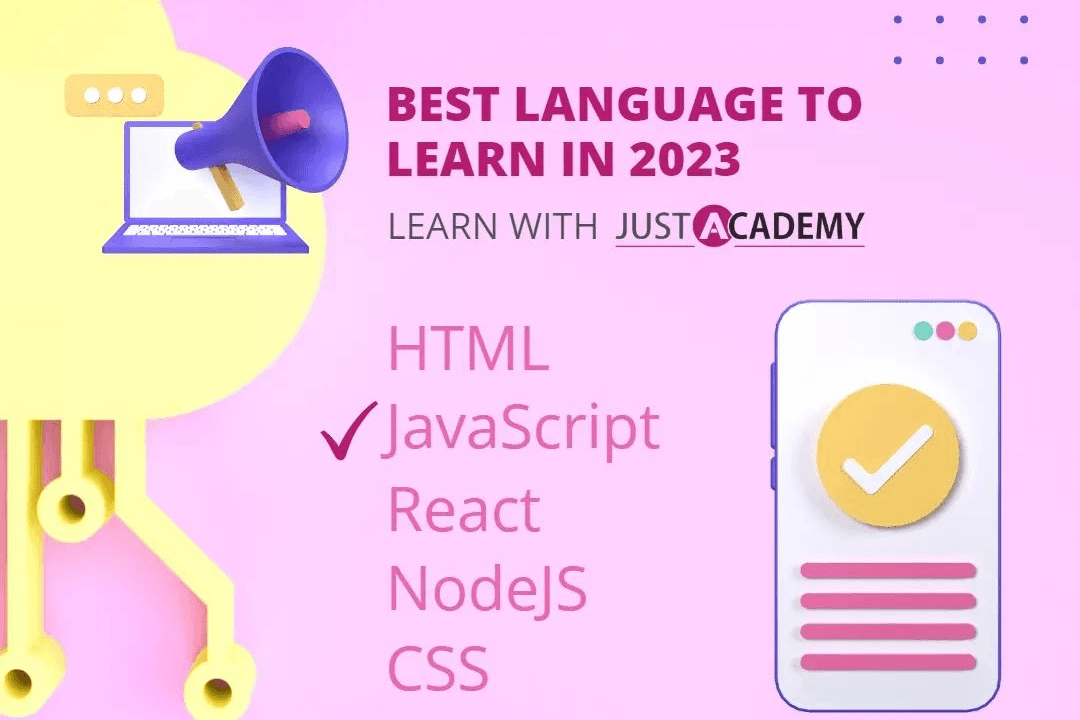Laravel Interview Questions Quora
Essential Laravel Interview Questions to Ace Your Next Job
Laravel Interview Questions Quora
Laravel interview questions on platforms like Quora are a valuable resource for both job seekers and recruiters in the web development field. They provide insights into the essential skills and knowledge required for Laravel developers, covering key concepts such as routing, middleware, database migrations, and Eloquent ORM. By exploring these questions, candidates can better prepare for interviews, understand industry expectations, and identify areas for improvement in their skill set. For employers, these questions help gauge a candidate's proficiency with the Laravel framework, ensuring they select the right fit for their development teams. Overall, Laravel interview questions serve as a crucial tool for navigating the competitive job market in web development.
To Download Our Brochure: https://www.justacademy.co/download-brochure-for-free
Message us for more information: +91 9987184296
1 - What is Laravel?
Laravel is a popular open source PHP framework designed for web application development. It follows the MVC (Model View Controller) architectural pattern, offering an elegant syntax and a robust set of tools for tasks such as routing, authentication, and database interactions.
2) Explain Laravel Middleware.
Middleware in Laravel acts as a bridge between a request and a response. It provides a convenient mechanism for filtering HTTP requests entering your application, allowing developers to execute code before or after the request handling, such as authentication or adding CORS headers.
3) What are Service Providers in Laravel?
Service Providers are the central place of all Laravel application bootstrapping. They are responsible for binding classes into the service container and setting up various components, which makes them essential for configuring application services.
4) How does Eloquent ORM work in Laravel?
Eloquent ORM (Object Relational Mapping) is Laravel's built in database abstraction layer that allows developers to work with the database using an active record implementation. It simplifies database operations by using PHP syntax instead of SQL queries, allowing for seamless interaction with the database.
5) What is the purpose of Routes in Laravel?
Routes in Laravel are used to define the application's URL structure and map them to the appropriate controllers and actions. They help organize the endpoints of an application, determining how the application responds to different HTTP requests.
6) How can you handle errors in Laravel?
Error handling in Laravel is primarily managed through its built in exception handler. Developers can customize the handler to define how different types of exceptions are rendered, whether that involves logging errors, returning custom error pages, or displaying specific messages.
7) What is CSRF Protection in Laravel?
CSRF (Cross Site Request Forgery) protection is a security feature in Laravel that helps prevent unauthorized commands being transmitted from a user that the web application trusts. Laravel automatically generates CSRF tokens for forms, which are validated on submission to secure against these types of attacks.
8) Explain how Laravel supports RESTful routing.
Laravel supports RESTful routing by allowing developers to define resource routes that correspond to standard actions like index, create, update, and destroy. This functionality enables easier and more intuitive controllers for handling RESTful requests.
9) What is the purpose of Config Files in Laravel?
Config files in Laravel store configuration settings for the application, which can be easily accessed throughout the application. They help manage application parameters such as database connections, caching preferences, and mail server settings, ensuring consistency and maintainability.
10) How do you create a Laravel Migration?
Creating a migration in Laravel involves using the Artisan command line interface. By running `php artisan make:migration create_users_table`, you generate a migration file where you can define the schema for the users table, allowing for version control of database changes.
11 - What are Laravel Events?
Events in Laravel provide a simple observer implementation that allows developers to decouple various parts of the application. You can create and dispatch events to handle actions asynchronously, making it easier to manage complex workflows while maintaining clean code architecture.
12) How can you implement authentication in Laravel?
Authentication in Laravel can be implemented quickly using Laravel's built in authentication system, which includes user registration, login, and logout features. Developers can use Artisan commands to scaffold entire authentication systems for their applications.
13) What is Dependency Injection in Laravel?
Dependency Injection is a design pattern used in Laravel to automatically provide instances of a class's dependencies. It helps manage class dependencies through the service container, promoting a cleaner and more maintainable codebase by reducing hard coded dependencies.
14) How can you implement caching in Laravel?
Laravel provides a unified API for various caching systems, including file, database, and Redis caching. You can implement caching by configuring the preferred driver in the config/cache.php file and using methods like `Cache::put()` and `Cache::get()` to store and retrieve cached data.
15) What is Laravel Blade?
Blade is Laravel's powerful templating engine that enables the use of plain PHP code in views while providing a clean and intuitive syntax for defining templates. It supports template inheritance and sections, allowing developers to create dynamic and reusable layouts effortlessly.
16) What are Laravel Jobs and Queues?
Jobs in Laravel represent tasks that can be dispatched and processed asynchronously in the background. Queues provide a way to delay the execution of tasks, improving application performance and user experience by offloading time consuming processes such as sending emails or processing uploads.
17) Explain the concept of Laravel Policies.
Policies in Laravel provide a way to encapsulate authorization logic for specific models or resources. They help define rules that control access by centralizing permissions into a single class, making the authorization clear and manageable for developers while adhering to the DRY principle.
18) What is a Laravel Controller?
Controllers in Laravel are responsible for handling incoming requests, processing them, and returning responses. They separate application logic from routing, improving organization and maintainability by grouping related request handling methods into a single class.
19) How do you implement validation in Laravel?
Laravel provides a robust validation mechanism that can be implemented by defining validation rules directly within the controller or using form request classes. Developers can easily validate user input and return detailed error messages to the client if validation fails.
20) What is the purpose of Laravel Mix?
Laravel Mix is a tool for defining Webpack build steps for your application. It simplifies the process of compiling assets like CSS and JavaScript, ensuring optimal performance and easy asset management with minimal configuration, enhancing developer productivity.
21 - Explain the role of .env file in Laravel.
The .env file in Laravel is used to store environment specific configuration variables, such as database credentials, application keys, and API secrets. This file allows developers to manage configuration settings securely and conveniently, avoiding hard coded values in code.
22) What are Laravel Form Requests?
Form Requests in Laravel are custom request classes that encapsulate form validation logic. They provide a clean and organized way to validate incoming requests and authorize actions while promoting reusable validation rules across different parts of the application.
23) How does Laravel's Route Model Binding work?
Route model binding automatically retrieves the model instance for the specified route parameter. By type hinting the model in the route's closure or controller method, Laravel will automatically inject the corresponding model instance, simplifying the retrieval of data.
24) Explain the concept of Events and Listeners in Laravel.
Events and listeners in Laravel work together to create a flexible and decoupled event driven architecture. Events are dispatched to signal that something has occurred in the system, while listeners respond to these events by executing corresponding logic, allowing for better separation of concerns.
25) What is Laravel's Artisan CLI?
Artisan is Laravel's command line interface, providing a set of helpful commands for application development. Developers can use Artisan to perform common tasks such as database migrations, testing, generating code, and running background jobs, enhancing productivity.
26) Describe the Resource Controller in Laravel.
Resource controllers in Laravel provide a convenient way to handle CRUD (Create, Read, Update, Delete) operations for a resource, automatically generating routes for these actions. Using the `Resource` route method simplifies the codebase by handling all actions for a resource with a single controller.
27) What is Laravel's Blade Component?
Blade components in Laravel allow developers to create reusable UI elements that encapsulate their markup and logic. By creating components, developers can avoid duplication and maintain consistency throughout the application, enhancing maintainability and readability.
28) How do you manage database migrations in Laravel?
Database migrations in Laravel are managed using the `php artisan migrate` command, which runs migration files in the designated order. This allows developers to version control database changes, roll back migrations, and share database schema changes across different environments.
29) What is the role of the Service Container in Laravel?
The Service Container in Laravel is a powerful dependency injection container that manages class dependencies and their resolutions. It facilitates automatic instantiation of class dependencies, promoting loose coupling and better organization of code.
30) How does Laravel support localization?
Laravel supports localization through its built in localization features, allowing developers to easily support multiple languages. Using language files, developers can define translation strings and display content in the user's preferred language effortlessly, enhancing user experience.
Course Overview
The “Laravel Interview Questions Quora” course is designed to equip learners with a comprehensive understanding of the frequently asked interview questions related to Laravel, one of the most popular PHP frameworks. This course covers essential concepts, practical examples, and common challenges faced by developers, enabling participants to build confidence in their knowledge of Laravel's features and best practices. With a focus on real-time project implementations and hands-on exercises, learners will not only prepare for interviews but also deepen their expertise in using Laravel effectively. Whether you are a novice or an experienced developer, this course aims to enhance your interview readiness through insights drawn from actual Quora discussions and expert recommendations.
Course Description
The “Laravel Interview Questions Quora” course offers a focused curriculum designed to prepare participants for success in Laravel-related job interviews. By exploring a curated selection of frequently asked questions sourced from Quora, this course delves into essential topics such as routing, migration, Eloquent ORM, and security practices within the Laravel framework. Through engaging lessons and practical examples, learners will gain the confidence and knowledge needed to tackle real-world scenarios, ensuring they are well-equipped to demonstrate their skills to potential employers. With a blend of theoretical concepts and hands-on projects, this course aims to enhance both interview performance and overall proficiency in Laravel development.
Key Features
1 - Comprehensive Tool Coverage: Provides hands-on training with a range of industry-standard testing tools, including Selenium, JIRA, LoadRunner, and TestRail.
2) Practical Exercises: Features real-world exercises and case studies to apply tools in various testing scenarios.
3) Interactive Learning: Includes interactive sessions with industry experts for personalized feedback and guidance.
4) Detailed Tutorials: Offers extensive tutorials and documentation on tool functionalities and best practices.
5) Advanced Techniques: Covers both fundamental and advanced techniques for using testing tools effectively.
6) Data Visualization: Integrates tools for visualizing test metrics and results, enhancing data interpretation and decision-making.
7) Tool Integration: Teaches how to integrate testing tools into the software development lifecycle for streamlined workflows.
8) Project-Based Learning: Focuses on project-based learning to build practical skills and create a portfolio of completed tasks.
9) Career Support: Provides resources and support for applying learned skills to real-world job scenarios, including resume building and interview preparation.
10) Up-to-Date Content: Ensures that course materials reflect the latest industry standards and tool updates.
Benefits of taking our course
Functional Tools
1 - Laravel Framework: The core of the course revolves around the Laravel framework itself, which is a PHP based web application framework known for its elegant syntax and powerful features. Students will learn to utilize Laravel’s built in tools for routing, sessions, authentication, and caching, which are essential for building robust web applications. This knowledge is vital when faced with interview questions related to the practical applications of Laravel's features in real world projects.
2) MySQL or SQLite: Familiarity with database management is crucial for Laravel developers. The course emphasizes the use of MySQL or SQLite databases alongside Laravel for managing data storage and retrieval efficiently. Students gain hands on experience with migration, seeding, and querying, preparing them for interview scenarios where database management forms a key part of the application development process.
3) Composer: Composer is a dependency management tool for PHP, and it is integral to Laravel projects. Students will learn how to use Composer to manage package dependencies, ensuring that their Laravel projects are up to date with the latest libraries. Mastery of Composer is essential for answering advanced interview questions about dependency management and project structure in Laravel.
4) Laravel Artisan: Laravel Artisan is a command line interface that helps developers streamline repetitive tasks. The course includes training on using Artisan commands to boost productivity by automating common tasks such as database migrations, seeding, and generating boilerplate code. Students will understand how to leverage Artisan effectively, providing them with a competitive edge during technical interviews.
5) Postman: For those preparing for full stack developer roles, Postman is utilized as a powerful tool for API testing. The course teaches students how to test and document APIs created with Laravel, enabling them to verify functionality and performance. This practical experience prepares students for interviews where they may be required to demonstrate proficiency in API integration and testing methodologies.
6) Version Control with Git: Understanding version control is essential for any developer. The course incorporates Git, teaching students how to manage code changes effectively, collaborate with others, and maintain the integrity of their projects. This skill is crucial for interviews, as employers often assess candidates’ abilities to work in a team environment and maintain project continuity using version control best practices.
7) Testing Frameworks (PHPUnit): The Laravel course introduces PHPUnit, a testing framework for PHP. Students will learn how to write unit and feature tests to ensure that their applications function as intended. Mastery of testing concepts is increasingly important in technical interviews, with many employers prioritizing candidates who can demonstrate knowledge of writing and executing tests to enhance code reliability.
8) Blade Templating Engine: The Blade templating engine, which comes with Laravel, allows developers to create dynamic and reusable views. Students in the course will delve into Blade's features, learning how to leverage its syntax to simplify view generation and enhance application performance. This knowledge prepares them for interview questions about front end development and template management in Laravel applications.
9) Middleware: Understanding middleware is critical for Laravel developers, and the course covers how middleware acts as a bridge between requests and responses in an application. Students will learn to create and apply middleware for tasks such as authentication, logging, and CORS management. This knowledge enables them to discuss security and request handling strategies during technical interviews.
10) RESTful APIs: The course emphasizes the principles of building RESTful APIs using Laravel. Students will learn how to create, read, update, and delete data via APIs, which is crucial for modern web application development. Proficiency in designing and implementing RESTful services prepares students for interviews focused on API development and integration.
11 - Eloquent ORM: Eloquent is Laravel's built in Object Relational Mapping (ORM) tool. Students will gain hands on experience in using Eloquent for database interactions, writing complex queries, and relationships between models. Interviewers often seek familiarity with ORM concepts, making this a vital area of focus during the course.
12) Routing: The course thoroughly explores Laravel’s routing capabilities, including resource routes and named routes. Understanding how routes work is fundamental for structuring applications effectively. Students will be equipped to answer questions about routing strategies and best practices in web application design during interviews.
13) Localization and Internationalization: As businesses expand globally, the need for applications that support multiple languages becomes critical. The course covers localization and internationalization strategies within Laravel, enabling students to understand how to build applications that cater to diverse audiences. This expertise can set candidates apart in interviews where global reach is a consideration.
14) Form Validation: Proper form validation is essential for building secure applications. The course teaches students how to implement validation rules using Laravel's validation mechanisms. Mastery of this topic is crucial for interviews, as it demonstrates a candidate’s ability to ensure data integrity and application security.
15) Task Scheduling: The course incorporates Laravel’s task scheduling capabilities, which allow developers to automate routine tasks without using external cron jobs. Students will learn how to schedule tasks efficiently, an important aspect of maintaining production level applications. This knowledge can impress interviewers looking for candidates who can streamline processes and improve application performance.
16) Deployment and CI/CD: Understanding deployment processes and Continuous Integration/Continuous Deployment (CI/CD) pipelines is essential for modern development environments. The course includes best practices for deploying Laravel applications to platforms like Heroku, AWS, or DigitalOcean, along with hands on experience with CI/CD tools. This skill is advantageous during interviews where deployment strategies are discussed.
17) Front end Integration: The course also highlights how to integrate front end technologies with Laravel. Students will explore combining Laravel with front end frameworks like Vue.js or React, learning to create seamless single page applications (SPAs). This skill is highly sought after in full stack development interviews.
18) Caching Techniques: Leveraging caching can significantly improve application performance. The course covers various caching techniques available in Laravel, including using Redis and Memcached. Understanding caching strategies prepares students for technical discussions about optimizing application performance during interviews.
19) Queue Management: Students will learn to implement queue management in Laravel using tools like Laravel Queue and Redis. This topic is increasingly important for handling tasks such as sending emails, processing uploads, or running long running processes asynchronously. Mastery of queuing concepts can be advantageous during interviews focused on application scalability.
20) User Authentication and Authorization: The course includes comprehensive training on implementing user authentication and authorization using Laravel’s built in features like Passport and Sanctum. Understanding user management is critical for securing applications, and this knowledge is crucial during interviews where security practices are evaluated.
These points will provide a comprehensive foundation for your Laravel course, ensuring students are well prepared for both real world applications and interview scenarios.
Browse our course links : https://www.justacademy.co/all-courses
To Join our FREE DEMO Session: Click Here
This information is sourced from JustAcademy
Contact Info:
Roshan Chaturvedi
Message us on Whatsapp: +91 9987184296
Email id: info@justacademy.co
React Js Interview Questions And Answers For Experienced Pdf












